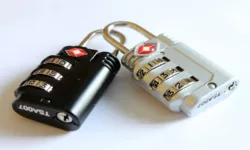In the business world, anything can happen through technology. You can expand on a global scale, hire remote employees from across the world, and easily connect with powerful influencers who can help you build a solid brand. But without the proper cyber security measures, the sustainability, growth, and reputation of your venture hang in the balance.
According to a report by Juniper Research, the cost of cyber-attacks is set to reach a whopping $2.1 trillion by 2019. On the bright side, there are now several ways for you to avoid contributing to this number – from deploying cloud-based security solutions to leveraging encryption in your online processes.
But as the field of cybersecurity grows more sophisticated, people tend to veer away from the core basics of online safety, including big brands with even bigger budgets. In 2014, a popular hacking incident involving Sony revealed that some people are still incapable of using strong passwords to secure important information.
Still, even strong passwords are no longer enough if you want to preserve the security of your business. This is where multi-factor authentication steps in.
What is Multi-Factor Authentication?
Multi-factor authentication describes the process of requiring two or more information for verification. For instance, important transactions such as transferring funds or accessing confidential data, can be validated with a one-time password sent via SMS or through a mobile ‘token’ app.
The use of biometric data in multi-factor authentication systems are also getting increasingly more popular. These typically require information that’s nearly impossible to bypass or replicate – like a person’s facial structure, fingerprint, iris, and voice characteristics.
Here are some of the reasons why you need to implement multi-factor authentication in your business:
1. It’s Not That Hard or Expensive to Do
You may think that incorporating multi-factor authentication in your business requires fancy technology and hundreds of dollars in software. Nothing could be further from the truth. As a matter of fact, you don’t even need to be a digital security specialist to leverage two-factor authentication.
For example, if your business website is built with WordPress, the easiest way to get started is to use the Two-Factor Authentication plugin. You can also require your employees to use two-factor authentication apps like Dashlane and Authy – both of which can be used for free and come with a library of learning resources for beginners.
2. It Encourages the Use of Strong Passwords
One of the key features of Dashlane and Authy is that they enable you to quickly sign in to your online accounts without having to type your password every single time. This encourages the use of strong, randomized passwords that are virtually impossible to remember and guess.
Take note that a few additional characters can exponentially increase the strength of your password. For example, according to HowSecureIsMyPassword.net, a computer can guess the password ‘123456’ instantaneously. But if you change the password to ‘corn123456’, then the time it takes to crack it increases to 8 months.
When in doubt, you can also use strong password generators or randomly type in a string of letters, symbols, and numbers. With a password manager or two-factor authentication app, you can have a unique, randomized password for every account – without having to memorize any of them.
3. It Prevents Hacking from Ex-Employees
In 2012, MyBizHomepage was reportedly hacked and put out of business by its former CTO. When founder Peter Justen tried to respond, he realized that the culprit used a fake license, never paid taxes, and always paid cash for everything. In other words, he was practically untraceable.
However, Justen isn’t completely blameless for the startup’s downfall. He should’ve had a plan that ensured the graceful firing of a top-level officer, whom had complete access to every single area of the business. But if only the company used biometric authentication, then they might’ve been able to track the whereabouts and real identity of the suspected hacker.
4. Significant Reduction in Data Theft
According to Symantec, an authority in cybersecurity, 80% of data breaches could’ve been averted with two-factor authentication – whether through a one-time password or biometric information. Still, you don’t need an in-depth study to understand that two or more passwords are better than one.
As a business, the benefits of using multi-factor authentication to secure the future are simply too much to ignore. But of course, you should also cover other attack vectors that hackers can use to steal your data. You can refer to this post for more strategies on protecting your business from cyber-attacks.








